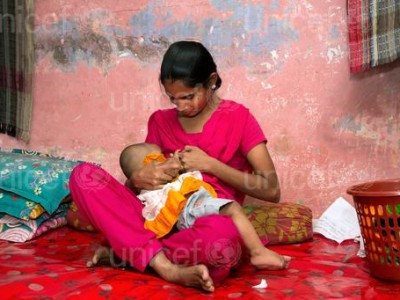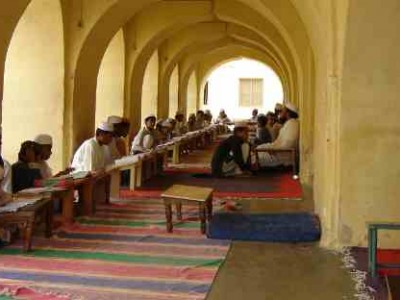
UNICEF-World Bank Report on the Impact of Covid-19 on Children

Health workers demonstrate proper handwashing to a child patient at the Bayat Community Health Centre in Klaten, Central Java, Indonesia. Photo: UNICEF
At least two thirds of households with children have lost income since the Covid-19 pandemic hit two years ago, according to a new report published by UNICEF and the World Bank.
Impact of Covid-19 on the welfare of households with children report – which presents findings from data collected in 35 countries – notes that households with three or more children were most likely to have lost income, with more than three-quarters experiencing a reduction in earnings. This compares to 68 percent of households with one or two children.
The report also notes that income losses have left adults in 1 in 4 households with children going without food for a day or more. Adults in nearly half of households with children reported skipping a meal due to a lack of money. Around a quarter of adults in households with or without children reported stopping working since the pandemic hit, the report says.
The report finds that children are being deprived of the basics, with children in 40 percent of households not engaging in any form of educational activities while their schools were closed. Given that data is compiled at the household level, the actual participation rate at individual level is likely even lower, especially for children who come from households with three or more children.
While households with three or more children were the most likely to experience a loss of income, they were also most likely to receive government assistance, with 25 percent accessing this support, compared to 10 percent of households with no children. The report notes that this helped to mitigate the adverse impact of the crisis on households who received support.
The report notes that prior to Covid-19, one in six children worldwide – 356 million – experienced extreme poverty, where household members struggled to survive on less than $1.90 a day.
More than 40 percent of children lived in moderate poverty. And nearly 1 billion children lived in multidimensional poverty in developing countries, a figure that has since increased by 10 percent as a result of the pandemic.
UNICEF and the World Bank urge a rapid expansion of social protection systems for children and their families. Support including the delivery of cash transfers and the universalization of child benefits are critical investments that can help lift families out of economic distress and help them prepare for future shocks.
Since the start of the pandemic, more than 200 countries or territories have introduced thousands of social protection measures, and the World Bank has supported countries with approximately $12.5 billion to implement such measures, reaching nearly 1 billion individuals worldwide.


